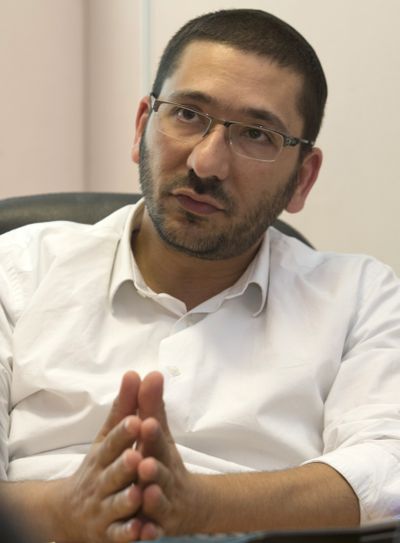More Jews leaving France
Thousands seeking jobs, safety in Israel

PARIS – Increasing numbers of French Jews are leaving for Israel, citing dim economic prospects and a sense of being caught between an increasingly influential far right and militant Islam. More than 5,000 are on track to leave this year, the most since after the Six-Day War in 1967.
Israel, seeing the influx as a success, is doubling down on its efforts to attract Europeans, planning to dedicate $29 million over two years to bring in new immigrants.
France has the world’s third-largest Jewish population after Israel and the United States – about 500,000, according to rough estimates. The country bans any official documentation of a person’s race, religion or ethnicity in a law with roots in French shame over its collaboration with the Nazis.
Since World War II, France has redoubled efforts to make Jewish families feel welcome. But many say dramatic acts of anti-Semitism coupled with France’s stagnant economy – which includes a 25 percent youth unemployment rate, compared with 11 percent in Israel – make a hard choice easier.
Laurie Levy, 26, left in 2013. A native of the southern city of Toulouse, her departure came after attacks by a French-born Islamic radical on a Jewish school and soldiers left seven people dead, including three children and a rabbi. She has given up on a career in French law and left behind her parents and siblings.
In Tel Aviv, she no longer feels the need to hide the Star of David she wears around her neck. But there are other concerns: Her parents are unlikely to uproot themselves and she worries about their future back in France. They, in turn, worry about her, living alone in a different country.
“Life is beautiful here. You work. You go to the beach. You see your friends. You’re not afraid,” said Levy, who now works at an Israeli design firm.
That she was able to switch fields and find a job is a demonstration of Israel’s economic allure. The country annually welcomes 1,000 French youths for a year abroad, and 70 percent of them decide to stay in Israel, according to Ariel Kandel, who runs the Jewish Agency for Israel in Paris.
The agency, which works closely with the Israeli government, aims to strengthen ties between Jews in the diaspora and Israel and spends tens of millions of dollars each year to bring Jews to Israel permanently. The $29 million in new spending targets European Jews and another $8 million will help them resettle.
French Jews say they have the added burden of watching the rise of an increasingly militant Islam and a revitalized far right. In May, on the eve of Europe-wide elections that saw the National Front party – whose founder has been repeatedly convicted of anti-Semitism – sweep into first place in France, a gunman attacked a Jewish museum in Belgium.
“They are finding themselves between the extreme right of Europe and the radical Islam of Europe,” said Kandel.
The number of French Jews migrating to Israel has been about 2,000 annually since the mid-1990s, decreasing from a peak of 5,292 after the 1967 Six-Day War. Jewish Agency head Natan Sharansky expects the French number to top out at more than 5,000 this year. That would be about 1 percent of France’s total Jewish population, and compares with 3,300 in 2013 and 1,900 in 2012.
With the French economy flat and one in four youths unemployed, the immigration to Israel fits with “a trend in France of young people migrating and trying to find opportunity elsewhere,” he said.
David Kadoch is among those on the cusp of departure. Born in a Paris suburb, the married father of two will be joining his two brothers in Israel in August. A network administrator, he’s confident that his skills will translate well in his new home.
Kadoch cited a combination of economic, social and spiritual factors for leaving, including concerns about the future for his two daughters, ages 1 and 3.
“There is a rise in anti-Semitism, there’s a difficult social climate, there’s a horrid economy,” he said of his native land. “From one side and the other, you have people who are hostile to Jews, for completely divergent reasons. And I don’t see how, in this context, history can fail to repeat itself.”